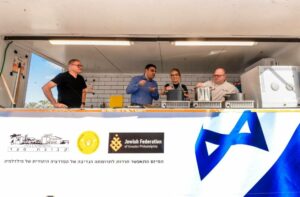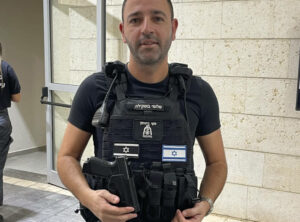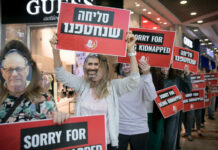
The Jewish Federation of Greater Philadelphia has raised more than $14 million for relief and other aid efforts in Israel since the Oct. 7 Hamas attack, according to Sarah Solomon, the organization’s chief development officer.
The group of benefactors includes more than 600 first-time donors and more than 500 who have not given money to the Jewish Federation in three or more years. There also have been several million-dollar gifts and “several hundred” donors who have given multiple times, Solomon said.
Many have asked friends to donate instead of giving them birthday presents. Community members celebrating bar or bat mitzvahs, weddings and graduations have directed their gifts to the Jewish Federation’s emergency fund.
“We’ve really seen the community step up,” Solomon said.
For now, their money is going toward immediate needs and rebuilding efforts. Israel’s southern region was attacked by Hamas on Oct. 7. Hundreds of thousands of Israelis have been displaced since. They need food, clothing, shelter and even mobile bomb shelters.
The Jewish Federation is giving emergency fund money to many organizations helping to meet those needs. Those include Leket, Israel’s national food bank; the Michael Levin Lone Soldier Center; and United Hatzalah, which organizes emergency medical response efforts.
The Jewish Federation is also supporting the Emergency Volunteer Project because it sends first responders to Israel for two-week periods. Many first responders in Israel were either murdered or called up into the army reserves.
“We’ve been immediately supporting the most pressing needs on the ground,” Solomon said.
As evidenced by those donor numbers, it has not been difficult to do that. Philadelphia-area Jews want to give.
“It says one, that there’s a tremendous feeling of helplessness. What can people do? They can come together and mobilize,” Solomon said.
There is also, as Solomon put it, “a war at home now in addition to the war in Israel.”
“We know that antisemitism is rising, but there’s a 388% increase since Oct. 7,” she added.
“We’re asking everyone in this community to reach deeper than they ever had before. Decades from now, will they be able to say that they did all that they could?” she continued. “The need is so great.”

Philadelphia-area Jews think of the Jewish Federation in a situation like this, according to Solomon. If they aren’t sure where to direct their money, they can trust the organization to do so in various ways.
But to maintain people’s trust, the Jewish Federation is offering transparency via weekly email reports about where the money is going. It is also making regular social media posts capturing moments, such as two little girls in Israel receiving art therapy. The organization is posting daily from its Instagram account.
“Federation is built for moments like this,” Solomon said. “We want everyone to understand that with their support, this is what we’re able to accomplish.”
The war, though, is ongoing.
And to continue to make an impact, the Jewish Federation will have to keep raising money. Solomon said, “We have an entire team of major gifts officers in communication with donors all year long.” They also continue to reach out to first-time donors.
In the 2020s, the organization is shifting to a more “relationship-based fundraising model,” Solomon said. That means sharing reports, articles and other materials about what the Jewish Federation is doing locally. Just like with its Israel-related efforts, the name of the game is transparency.
“I think we’ve demonstrated and worked hard to be incredibly transparent,” the chief development officer said. “You have an ability to give and give quickly and see your dollars in action.”
In Israel, that next action will be directed toward long-term needs, according to Solomon. Those might include infrastructure, community rebuilding and trauma counseling.
“We’re starting to refocus on rebuilding from absolute destruction,” she said.






